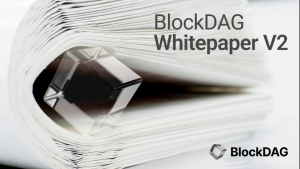UK authorities increase capital adequacy requirements for the banks- Will FX sector emulate the US?
Today, the Bank of England has unveiled new rulings which stipulate new and much more stringent criteria with regard to net capital adequacy requirements for banks and building societies in Britain. A statement issued by the Bank of England confirms that the central bank is to proceed to increase the UK countercyclical buffer rate from […]

Today, the Bank of England has unveiled new rulings which stipulate new and much more stringent criteria with regard to net capital adequacy requirements for banks and building societies in Britain.
A statement issued by the Bank of England confirms that the central bank is to proceed to increase the UK countercyclical buffer rate from zero to 0.5% of risk-weighted assets.
These new capital adequacy requirements wil become effective in one year’s time, specifically March 27, 2017.
Following 2015, a year in which some of the largest interbank FX dealers experienced tremendous losses, concerns over the capital position of some of the largest institutions in London have clearly been meted out in the boardroom of the Bank of England.
Back in December, the Financial Policy Committee (FPC) which is the rulemaking division of the Bank of England had indicated that the countercyclical buffer rate may be 1% of risk-weighted assets.
As with the implementation of high capital adequacy requirements for non-bank FX dealers in the US with the Dodd-Frank Wall Street Reform Act, which requires retail FX brokerages in the US to maintain $20 million in net capital and IBs to maintain $45,000 in net capital, the purpose of this new ruling on the British side of the Atlantic is to mitigate any potential effect of weaker profits in the coming years which could damage the banks’ abilities to withstand future economic turbulence.
The Bank of England simultaneously published its plans for this year’s stress test of Britain’s largest banks, which is intended to see how financial institutions would fare in a scenario where global growth falls 1.9%, while UK GDP growth contracts 4.3%. Under the scenario, UK unemployment would increase by 4.5 per cent and residential property prices would fall by 31 per cent. The test will also factor in market volatility, depreciating currencies in emerging markets and oil prices of $20 per barrel.
Such measures represent a similar ethos to how the US sought to protect companies from failure by ensuring that they maintain high net capital which is not usable for operations purposes, notably as a reactive measure to the failure of MF Global and Peregrine Financial Group, two of North America’s largest electronic trading companies.
Should the Bank of England begin to take a conservative stance with regard to capital adequacy and use that as a means of ensuring commercial stability rather than encouraging the of solid counterparties to mitigate counterparty risk, this could pave the way for higher capital requirements for UK brokerages, which currently are subject to a minimum of 730,000 Euros under the MiFID II rulings.
Photograph: Copyright FinanceFeeds









